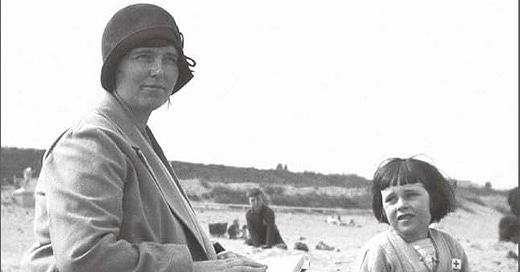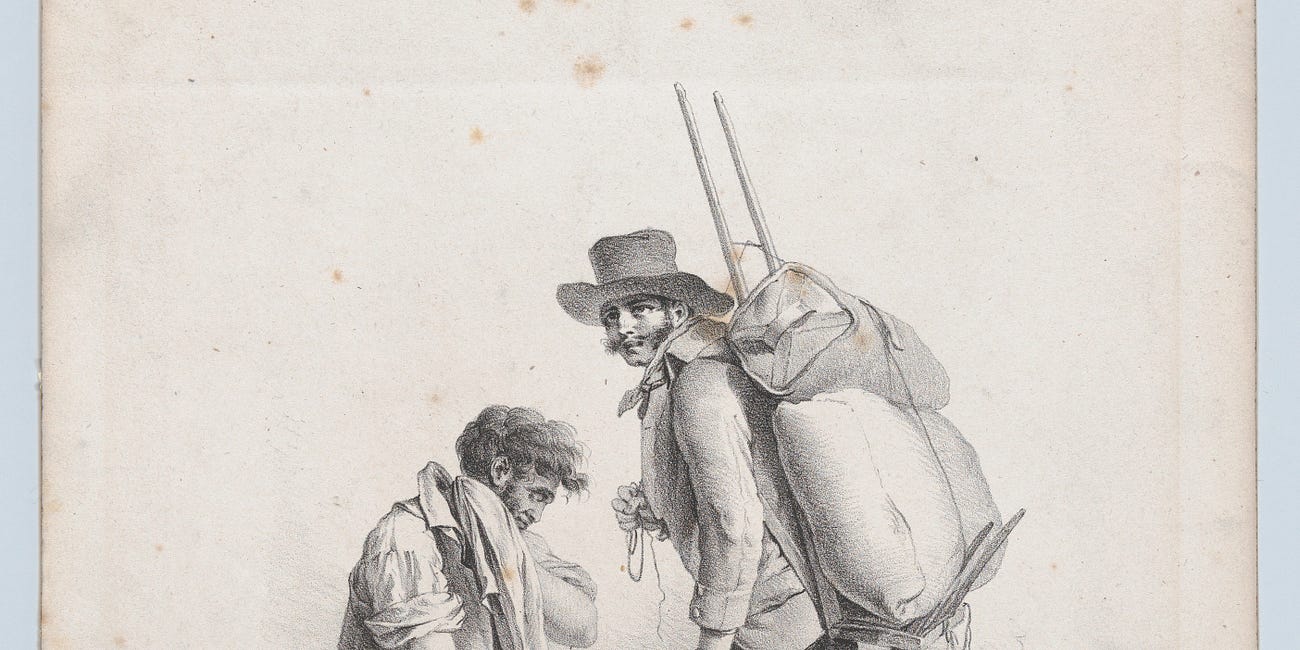Do Miners Read Dickens? is the title question of a 2013 book by Hywel Francis and Sian Williams. As the story goes, they asked themselves this question while searching the stacks of the South Wales Miners' Library.
The answer, it turns out, was yes. Welsh miners, historically, have been avid readers — and they offer us a great example of people who take their education into their own hands.
The best, or at least most widely-acclaimed, book on this subject is Jonathan Rose’s The Intellectual Life of the British Working Classes. Rose thoroughly documents the robust intellectual life of British working people — not only the Welsh miners, but also those early autodidacts insistent on reading the Bible in their own tongue and the later readers of penny dreadfuls and affordable paperbacks.
For instance, writing on early religious disputes in England:
These converts often felt a sense of sin not because they were deviating from clerical orthodoxy, but because they had not done enough to read and speak for themselves: they expressed shame at their illiteracy, their lack of serious reading, their inability to voice their theological feelings in public.
These converts felt a sense of responsibility to take control of their intellectual lives, to read and speak for themselves.
But it is Rose’s chapter on Welsh miners that has stuck with me. By the mid-1930s, there were more than a hundred well-stocked libraries among the Welsh coalfields, ‘with an average stock of about three thousand volumes.’ At one point, the Tredagar Workman’s Institute circulated 100,000 volumes per year. These institutes facilitated a thriving intellectual culture among the Welsh working class. Some of their achievements would be impressive even to the most well-educated among us. One workman ‘had been well into his thirties before his wife taught him to read: in his old age he was successfully tackling the New Testament in Greek and Nietzsche.’ Down in the pits, miners discussed Marx and Homer.
For these miners, self-education became a way of cultivating the self. One of the miners used a wondrous phrase: ‘In some mysterious way we became freemen of a spacious world.’ They have become freemen because, unlike in their daily lives, they can move freely in the realm of ideas. And that realm is a truly spacious world: more wondrous, interesting, and exciting than we ever expected.
Autodidacts had long ‘struggled to assume direction of their own intellectual lives, to become individual agents in framing an understanding of the world,’ Rose says. But the miners found a way. These miners took being an autodidact seriously. They took their education into their own hands.
Taking your education into your own hands
In April of 2019, I passed my dissertation defense. It was an important day, but I can’t remember many details. I recall a few jokes that I made at the beginning of my presentation; I remember quite vividly the one devastating question a member of my committee asked (and then dropped, telling me it would make for good future research); I know afterward …
In the introduction to the third edition, Rose admitted that his initial conclusion was ‘simply wrong,’ writing:
When I looked back from the perspective of 2001, it appeared that the lives of working epople had gradually improved over the past two hundred years…Education had become universal, and it aimed at teaching not only vocational skills, but also the arts and humanities…Given all that, I concluded that autodidacts had become obsolete.
Rose then documents how, in some ways, the lives of working people have not improved. He points out that humanities enrollments have plummeted, with students being funnelled toward technical and business studies; at lower levels of education, teachers are ‘teaching to the test.’
In light of this, Rose thinks that we need to reclaim autodidact culture:
That seems to suggest a return to autodidact culture. And for all their flaws, social media offer unprecedented opportunities for self-education, DIY research, and samizdat publishing. The American media critic A. J. Liebling famously wrote that “Freedom of the press is guaranteed only to those who own one.” Now everyone owns one—even if bureaucrats, corporate titans, and established intellectuals find that frighteningly democratic. We still have mutual improvement societies, but now they are online discussion groups. No literary critic today commands the public respect accorded to F. R. Leavis or Lionel Trilling, and enrollments in university English departments have imploded. But readers are doing their own criticism in self-governing book groups: 50,000 of them in the UK, where 32 percent of the participants identify as working-class and 36 percent are lower-middle-class.
How do we do it? I host read-alongs of philosophical books and novels — we’re halfway through The Republic right now, and yesterday I hosted a Zoom call to discuss it. My friend
has written up a 12-month immersive course in the humanities, designed to give you a decent self-education with a reading load of just 250 pages a week. Those are two ways to begin your self-education.The Catherine Project, founded by Zena Hitz of St John’s College, hosts free discussions of classic books. I read The Concept of Anxiety with a small group earlier this year; I’ve applied for several groups for the next session, and I’m eagerly awaiting my placement. In those groups, we read slowly and (hopefully) carefully, and we never know where our fellows’ questions will take us.
But you don’t have to join a group. You don’t have to read a book with me or follow Gioia’s curriculum. You could find some books that touch on interesting subjects and see where your mind goes.
You too can be a freeman of a spacious world.







“A freeman of a spacious world.” What a beautiful phrase!
great article I enjoyed reading it. I hope one day I can have a random conversation about what book someone is reading and not what they watched on Netflix. Sigh… one day.